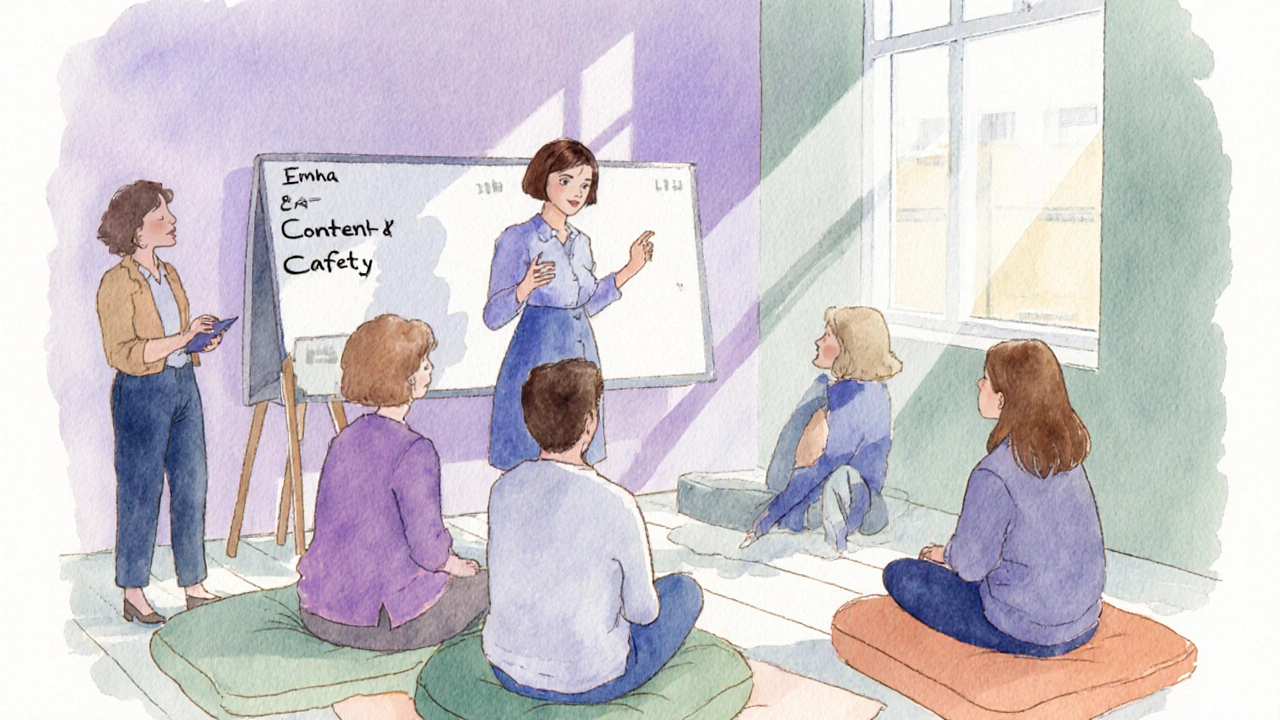When you hear the phrase “sex worker,” images from media often dominate the conversation-glamour, danger, or moral panic. Behind those snapshots are real people who navigate daily hardships, build strong support circles, and fight for dignity. This guide shares true‑to‑life tales of resilience, highlights the tools they use, and shows how allies can contribute.
Key Takeaways
- Resilience is a skill set honed through community, health access, and legal awareness.
- Stigma and policy shape risk, but many workers turn challenges into empowerment.
- Practical support-peer networks, NGOs, and safe‑space services-makes a measurable difference.
- Everyone can help by listening, respecting agency, and advocating for fair laws.
What Is a Sex Worker?
Sex worker is a person who provides consensual sexual services in exchange for money or goods. The term covers escorts, adult performers, street‑based providers, and online content creators. It emphasizes agency and moves away from criminalizing language.
Why Does Resilience Matter?
Resilience-defined as the ability to adapt and thrive amid adversity-directly impacts safety, mental health, and economic stability for sex workers. Studies from the UK’s Office for National Statistics show that workers with strong community ties report 30% lower rates of anxiety and a 25% reduction in violent incidents.
How Do Sex Workers Build Resilience?
- Community support: Peer groups exchange safety tips, share resources, and provide emotional backup.
- Legal literacy: Knowing rights under the UK’s Equality Act empowers workers to confront discrimination.
- Health access: Regular check‑ups, mental‑health counseling, and harm‑reduction services keep bodies and minds strong.
- Financial planning: Budgeting tools and diversified income streams reduce reliance on a single client.

Real‑World Tales of Strength
Emma, a 28‑year‑old London escort, faced a client who tried to breach her boundaries. She reported the incident to The UK Sex Worker Support Network, which connected her with a legal advisor and a trauma‑informed therapist. Within two months, Emma led a workshop on consent that now reaches over 200 peers.
Liam, an online cam model, used a budgeting app to save for a freelance graphic design course. The extra skill allowed him to transition part‑time, giving him more control over his schedule and reducing exposure to risky clients.
Sofia, a street‑based worker in Manchester, joined a local advocacy group that lobbied the city council for safer street lighting. The resulting policy change cut nighttime incidents by 40% in her area.
Support Systems That Make a Difference
These entities form the backbone of resilience:
- Peer networks - informal groups that share best practices.
- Non‑governmental organizations (NGOs) - offer legal aid, health services, and crisis hotlines.
- Health services - specialized clinics that respect privacy and provide STI testing.
- Advocacy groups - push for policy reforms and public education.
Legal Framework and Its Impact
The UK’s current legal stance treats consensual adult sex work as a civil matter, but certain activities remain criminalized (e.g., brothel‑keeping). This creates gray zones where workers may hesitate to seek police protection. Organizations like Sexual Health London provide confidential legal clinics to navigate these complexities.
Common Pitfalls and How to Avoid Them
- Isolating yourself - reach out to peer groups early; isolation raises safety risks.
- Ignoring mental health - schedule regular counseling; untreated stress can lead to burnout.
- Over‑reliance on a single platform - diversify income streams to avoid sudden bans or algorithm changes.
- Assuming all NGOs are safe - verify credentials and read reviews from fellow workers.

When Is This Knowledge Most Useful?
If you are a sex worker seeking safer practices, a newcomer learning the ropes, or an ally wanting to support the community, these strategies provide a roadmap. Policy makers can also use this evidence to design more humane regulations.
Comparison: Challenges vs. Resilience Strategies
| Challenge | Resilience Strategy |
|---|---|
| Stigma from public & law enforcement | Legal literacy workshops + peer support groups |
| Violent client encounters | Safety apps, community watch, rapid‑response hotlines |
| Limited healthcare access | Specialized clinics, tele‑health services, NGO subsidies |
| Financial instability | Budgeting tools, diversified income, micro‑grant programs |
| Isolation and mental health strain | Regular counseling, peer mentorship, community events |
How Can Allies Contribute?
Listening without judgment, donating to reputable NGOs, and advocating for de‑criminalization are three concrete actions. Sharing accurate stories-like the ones above-helps shatter myths and humanize the industry.
Frequently Asked Questions
What does “resilience” mean for sex workers?
It’s the combination of personal coping skills, community support, and access to legal and health resources that lets workers stay safe and thrive despite stigma or danger.
Are there specific NGOs in the UK that help sex workers?
Yes. Notable ones include the UK Sex Worker Support Network, Sexual Health London, and the Terrence Higgins Trust, all offering legal aid, health services, and crisis hotlines.
How can I safely report a violent client?
Contact the police’s non‑emergency line and reference any prior reports with the support network. Many NGOs also provide a “safe‑report” form that forwards details to legal advisors.
Do online platforms provide protection for cam models?
Some platforms have built‑in safety tools-block lists, tip‑withdrawal controls, and anonymous usernames-but policies vary. Diversifying platforms reduces reliance on any single service.
Is de‑criminalization the best legal route?
Evidence from NewZealand shows de‑criminalization improves health outcomes and lowers violence. Many experts argue it offers the most comprehensive protection for workers’ rights.




Ajay Kumar on 10 October 2025, AT 18:16 PM
Thanks for putting together these resources. The community‑based safety apps and the budgeting tools you mention are especially useful for new entrants because they reduce reliance on a single platform and help keep finances stable. It’s good to see legal‑literacy workshops highlighted; understanding the Equality Act can really empower workers when they face discrimination. Keep the guide concise and you’ll reach a wider audience.